Can an Alcoholic Safely Drink Non-Alcoholic Drinks/Mocktails?
This might seem like a no-brainer. It’s just a mocktail… right?
Addiction is a complex disease, and it’s not always so simple.
As we know, everybody’s different, so the safety of drinking alcohol-free beverages varies from person to person.
What are Non-Alcoholic Beverages?
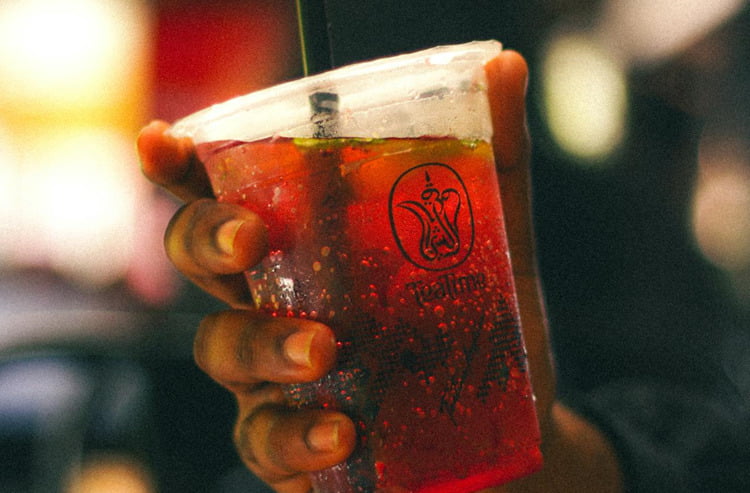
‘Virgin’ Cocktails or Mocktails
These are non-alcoholic cocktails that contain all of the fruity goodness without none of the alcohol.
If you’re craving something with a bit of spice or a salt rim, mocktails can really fill a void.
Easy mocktails include:
- Soda water with cranberry juice
- Soda water with lime or lemon
- Faux margarita
You can find some recipes to try on the DrinkAware website.
Non-Alcoholic Beer & Wine
Non-alcoholic beer is widely available in UK supermarkets, with many big-name brands offering an alcohol-free option.
There are also a few non-alcoholic wine brands to choose from.
Alcohol-Free Spirits & Sparkling Water
There’s an ever-growing list of spirit options to choose from, both in local supermarkets and online.
Sparkling-free water can be a good low-budget option. Having a little sparkle in your drink can make it feel that extra bit special.
Can You Drink Mocktails in Recovery?
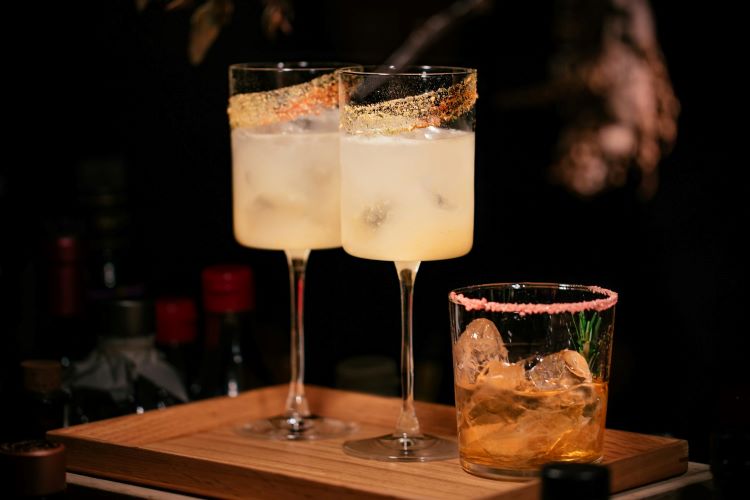
For many people, sobriety is fragile, especially in the early days.
It’s important to have fun, but only in ways that make you feel secure in your sobriety.
Alcohol-free drinks may seem like the safe option, but there are a few things to consider.
The Positives
Feeling Included
Being able to go to a drinking event and have a drink that doesn’t contain alcohol can help sober people to be sociable and feel included.
Harm Reduction
For people who are not teetotal but want to cut down, these drinks can offer a good alternative.
If you don’t experience addictive symptoms but you do want to reduce your alcohol intake, non-alcoholic alternatives are a great way to do so.
Many people drink these replacements during dry January, and for health reasons.
A study by YouGov found that 44% of 18 to 24-year-olds drink alcohol alternatives. [1]
It’s also important to note that in a Stanford University study of people using non-alcoholic alternatives alongside alcohol to try to cut down, researchers found that people often think they’ve cut down when they’ve actually had the same amount of alcohol. [2]
The Risks
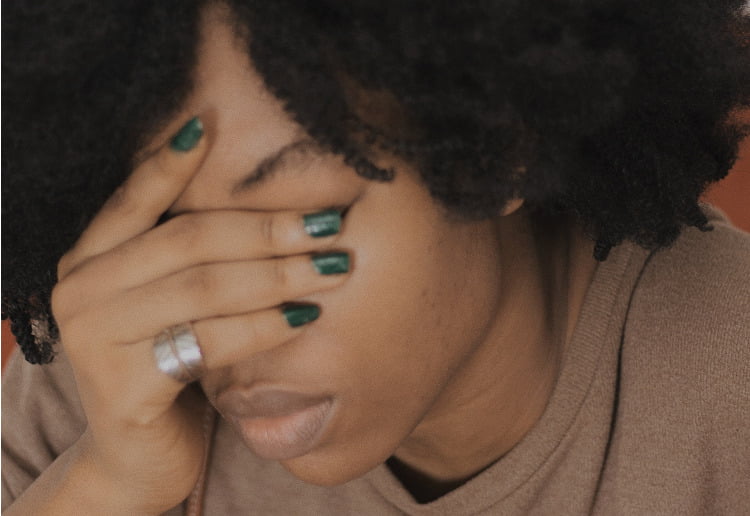
Not 100% Alcohol-Free
Many ‘non-alcoholic’ beers and spirits contain trace amounts of alcohol. This sometimes means that they’re 0.5%.
Drinking many of these drinks could lead to a very low-level intoxication.
However, it is possible to get 0.0% options, which are totally alcohol-free.
Relapse
Experts warn that for people with an alcohol addiction, certain tastes and smells can be a trigger for alcohol cravings. [3]
What seems like a harmless non-alcoholic beer could stir up old feelings associated with the drink, since they smell and taste like the real deal.
The danger is that these drinks and the feelings they cause could lead people to crave alcohol, and experience a slip. [4]
What’s a Slip?
A slip is when a person in addiction has a drink after a period of recovery.
Some people are able to stop, and not go fully into relapse.
However, for some, this turns into several drinks, or even a further period of heavy consumption and active addiction.
How Common is Relapse?
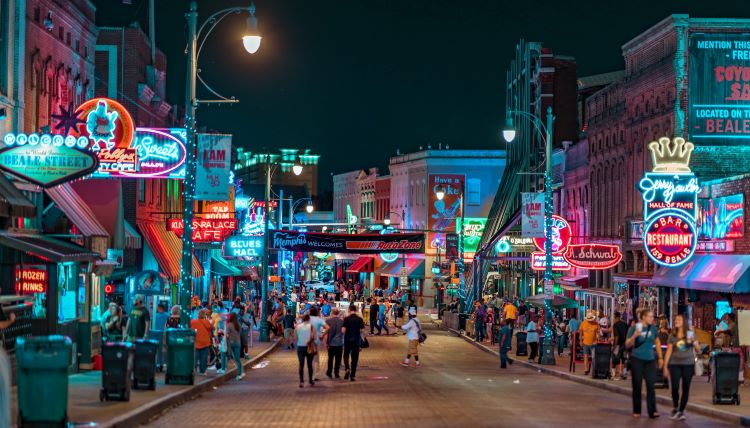
Addiction is a chronic relapsing disorder, so it’s important to understand that this is often a part of any recovery journey.
Research tells us that within twelve months of abstinence, 43% of smokers will relapse (start smoking again). [5]
After five years, the risk of relapse drops to 7%. [6]
This is why it’s important to realise that for some, any addiction trigger can be a slippery slope to relapse.
Are Non-Alcoholic Drinks Healthy?

As we all know, alcohol is bad for our health.
The WHO reports that 7% of the world’s population aged 15 years and older, live with alcohol use disorders, and 3.7% of the adult global population are living with alcohol dependence. [7]
As alcohol-free options don’t contain harmful toxins, they are much better for you than choosing the alcoholic option.
Cutting down on alcohol can reduce the risk of:
- Liver disease
- Sleep disruption & disorders
- Mental health disorders like anxiety & depression
- Gastrointestinal issues
- Cognitive health problems
These drinks don’t carry risk of addiction, so they’re also less of a risk. [8]
Just like many soft drinks, mocktails and other replacements can contain a high sugar content, and occasionally caffeine, so it’s important to only drink them as a treat.
Check the alcohol content of your non-alcoholic drink, as ‘low alcohol’ drinks do contain some alcohol.
How Do I Know if Non-Alcoholic Drinks are Right for Me?
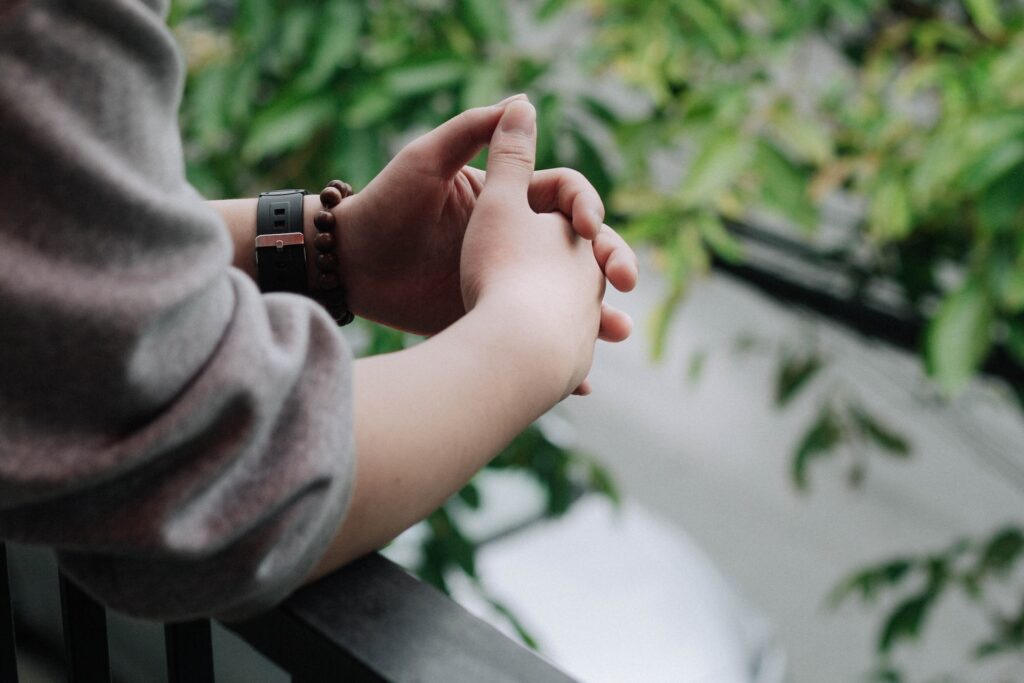
You’ll need to assess your own circumstances when deciding whether non-alcoholic drinks are right for you.
- Record your triggers – Write down any triggers as you experience them. These are things that make you want a drink, like overwhelming thoughts or seeing an advert for alcohol. If non-alcoholic beer is an external trigger for you, make a note of this, and tell your therapist or sponsor if you have one
- Avoid risky situations – If you can help it, stay away from places where you know people will be drinking more than socially but excessively. This way, you won’t feel tempted to drink
- Plan ahead – Understand that you can’t always avoid external triggers, and practice your response in advance. You can always leave a situation that makes you tempted to drink
- Open up – Try talking to a mentor, or a supportive loved one. They may be able to assess whether non-alcoholic drinks could be a trigger for you
What Can I Have Instead?
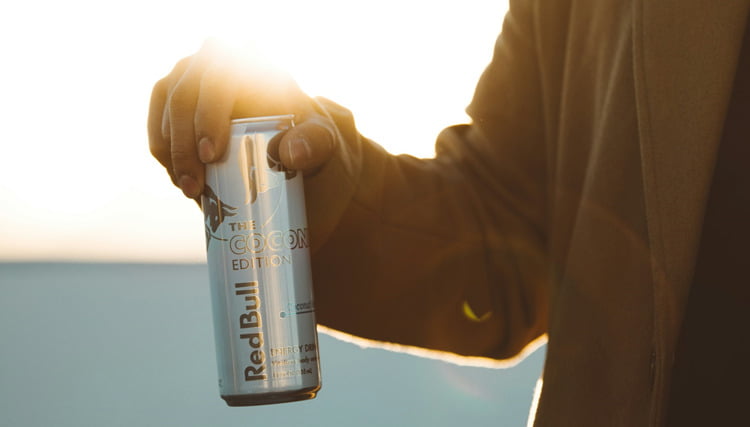
If a mocktail or alcohol look-alike is too risky for you, stick to a drink that won’t conjure up memories of alcohol.
Try having flavours that aren’t similar to ones you associate with alcoholic drinks.
What Are Some Other Tips for Staying Away from Alcohol?
- Host your own – Try hosting a sober event. This will give you more control over who you’ll see, whether they’ll be supportive and what kind of triggers you’ll have to contend with
- Take it slow – Alcohol Change recommends taking baby steps if you feel alcohol triggers could be a big temptation
- Be selective – Don’t go places or see people that could cause feelings of wanting to have a drink
- Create a new tradition – If you’re used to having a glass of champagne at Christmas, try having either a replacement, or lemonade
- Keep a soft drink in your hand – When dropping a physically-addictive habit like drinking, the behavioural aspects of having something to do with your hands are just as important
- Set clear boundaries – If people try to encourage you to have a drink, having a pre-prepared explanation or excuse can help you not to give in to pressure in the heat of the moment
- Stay present – Staying sober can help you to be more mindful of the moment. Connect with the feelings you experience when you’re talking to people. Research shows us that accepting your emotions rather than rejecting or numbing them with drink can result in better mental health [9]
- Have an exit strategy – If you decide to go to a pub or another person’s house where alcoholic drinks will be flowing, it’s okay to go for a walk if needed
Where Can I Find Help for Alcoholism?
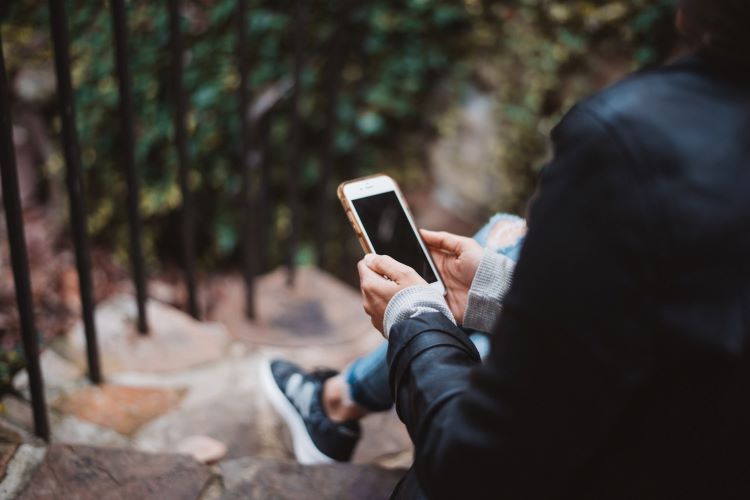
Make an appointment with your doctor. They’ll be able to give you some pointers towards alcohol harm-reduction and recovery groups in your local area.
The following non-profit organisations offer free alcohol guidance for you and your friends and family:
- Alcoholics Anonymous (AA) – free, twelve step support for people addicted to alcohol that teaches abstinence and peer support
- Al-Anon Family Groups – a support group for family members to receive help and learn how to help loved ones struggling with alcoholism
- SMART Recovery – diagnosis help, motivational help, and tools and techniques
- Change Grow Live – advice and resources about drugs and alcohol
- We Are with You – meetings and information for recovery from drugs and alcohol
- Adfam – online forum support and local recovery groups
- National Association for Children of Alcoholics (NACOA) – confidential free-phone and email support for children of alcohol-dependent parents
The NHS website also has resources and useful links to free alcohol recovery support.
Do I Need to Go to Rehab?

According to NHS guidelines, you may have an addiction if:
- You get into trouble because of your drinking
- You often feel the need to have a drink
- Other people warn you about how much you’re drinking
- You think your drinking is causing you problems [10]
What’s Rehab for Alcoholism Like?
Inpatient Rehab
Inpatient rehab is a residential option, which means that you live at your facility.
This gives you 24/7 treatment and security.
Your alcohol withdrawal symptoms will be treated with detox and therapy.
It’s possible to go to residential rehab is available on the NHS through a referral, but public funding for these services is stretched and dependent on meeting strict criteria.
Outpatient Rehab
Outpatient rehab allows you to continue to live at home while travelling into a rehab facility for regular treatment sessions.
This can give you the flexibility to look after children or continue your job.
Outpatient rehab can also be paid for through the NHS or your insurance provider.
How Can Rehab Recovery Help?

We can help to refer you to top, CQC-approved rehabs across the UK.
At Rehab Recovery, you can get completely free advice about alcohol misuse, or any other addiction.
For more information about rehab, call our 24/7, confidential hotline on 0800 088 66 86.
References
[2] https://scopeblog.stanford.edu/2024/02/27/non-alcoholic-drinks-and-alcoholism/
[3] https://scopeblog.stanford.edu/2024/02/27/non-alcoholic-drinks-and-alcoholism/
[5] https://www.ncbi.nlm.nih.gov/books/NBK556005/
[6] https://www.ncbi.nlm.nih.gov/books/NBK556005/
[10] https://www.nhs.uk/live-well/alcohol-advice/alcohol-support




